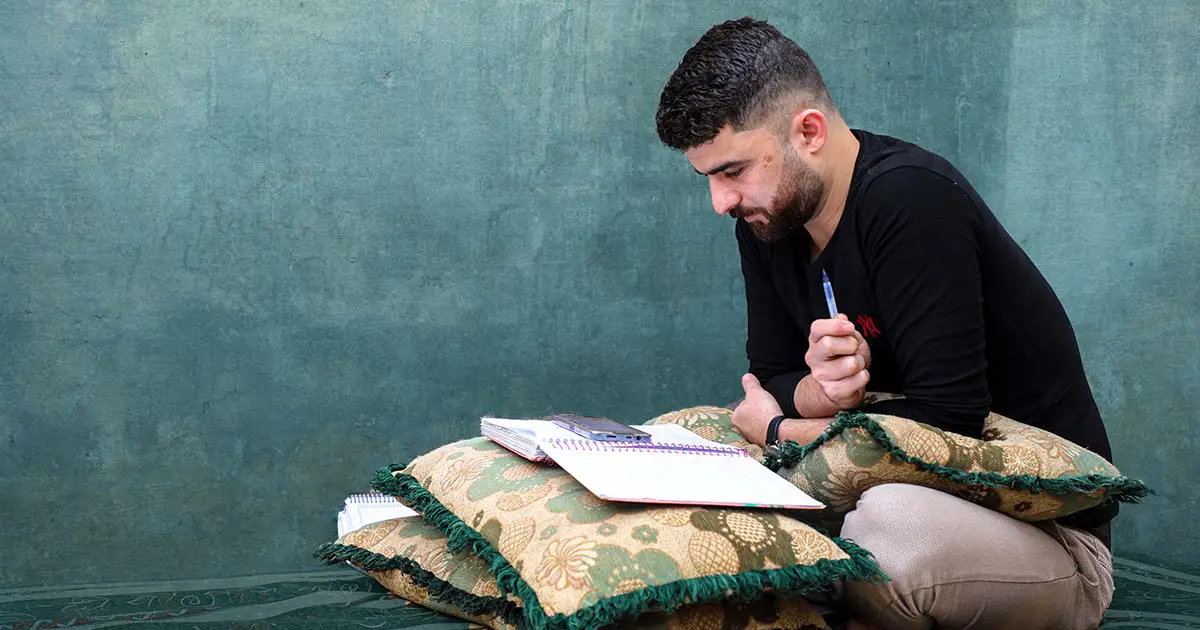Abdullah Gulak, a resident of Kfaruma village, left his studies and embarked on a vocational path. He acquired the skill of mobile phone repair and started practicing it. However, he didn’t feel like he had achieved the dream he aspired to, despite his success in his work.
As a result, he decided to return to his studies and obtain his high school diploma after hearing about the Masarat Initiative, which was suitable for his work situation and enabled him to balance his work, home, and education.
Abdullah works for about eight hours a day at the repair shop and then returns home to fulfill his family’s needs. When he has completed everything, he turns his attention to his studies. He watches Masarat videos to catch up on what he missed during his absence, hoping to fulfill the dream that awaits him and is constantly on his mind.
Abdullah’s return to education after a long hiatus and years of displacement encouraged others in his surroundings to pursue the same path. His wife and friend also returned to their studies, especially since the Masarat Initiative’s work system accommodates all spectrums of society. Students can follow their lessons at any time that suits them and leave their questions and inquiries to be answered later.
Abdullah does not deny the difficulty that comes with it, especially in balancing the demands of home, work, and study. However, he found pleasure in taking up this challenge, which will encourage others like him to return to education after seeing Abdullah succeed and achieve his family’s dream of obtaining a degree that secures his future.
The desire of Abdullah’s family to see him among the elite was a major driving force for his persistence. He found Masarat Initiative to be the best opportunity to achieve his dream and his family’s dream. It allowed him to study during his free hours within the shop, in addition to the time he could spend at night watching the initiative’s videos.
Abdullah’s case is similar to hundreds of cases that have benefited from the existence of Masarat Initiative. They have organized their time to return to the classroom after years of absence wether it was due to work or displacement and residing in areas far from urban centers. These cases, among others, encourage the volunteers in Masarat Initiative to continue their work in order to reach the largest number of beneficiaries and contribute earnestly to better changing the landscape especially in the educational sector.



